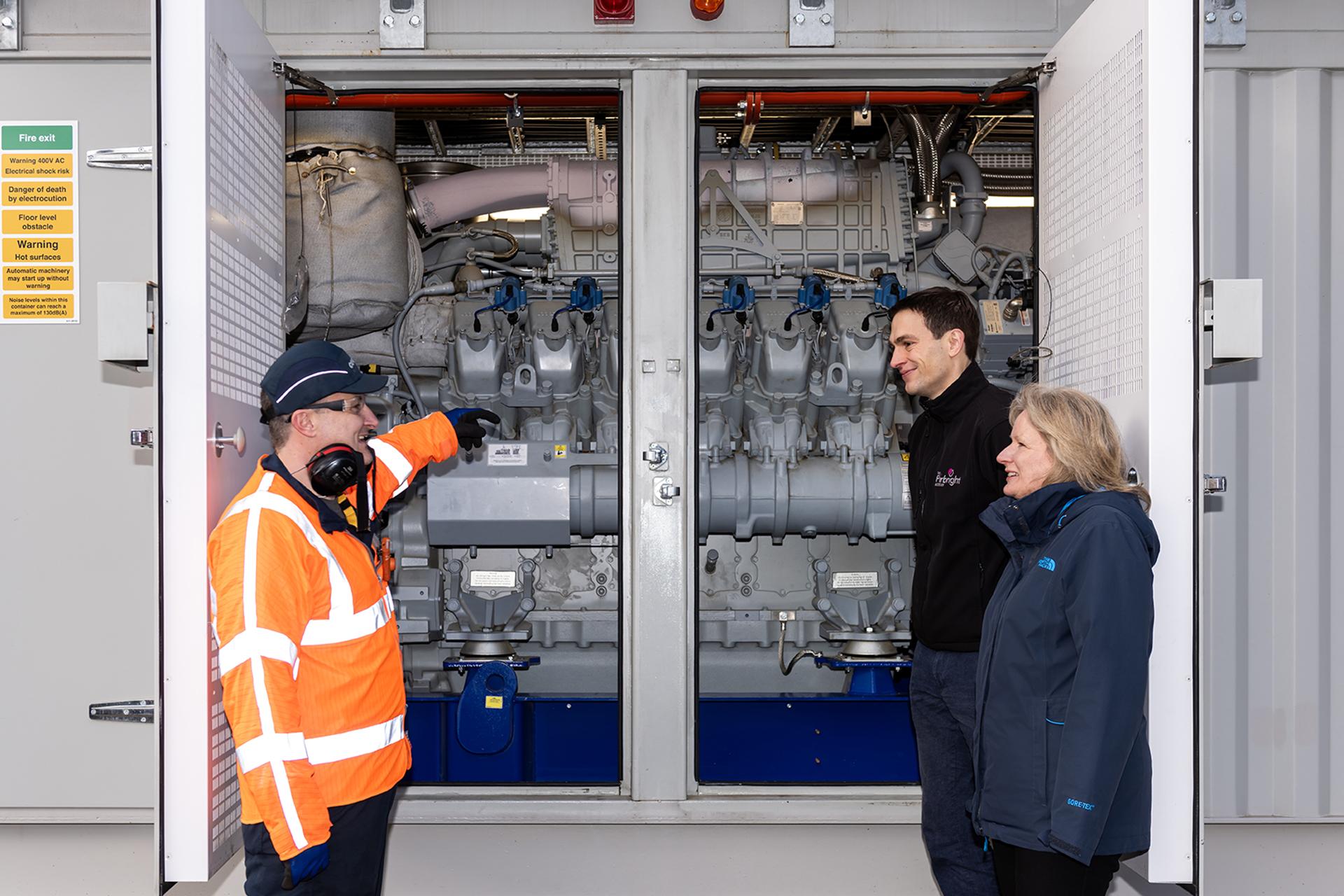The Pirbright Institute is cutting fossil fuel energy use and costs across its Surrey campus in 2024.
The Institute analysed the energy efficiency of its buildings and infrastructure in 2022-23 to develop a site-wide energy plan that drives down gas and electricity consumption.
Measures now in place for 2024 range from small-scale adjustments, like introducing power-saving light fittings, to large-scale changes including mothballing inefficient buildings, installing more efficient equipment, and ensuring that benefits of a new Combined Heat and Power Plant (CHP) are maximised.
Professor Bryan Charleston, Institute Director, said: “The Institute is committed to saving energy in line with UKRI’s Environmental Sustainability Strategy. As part of our review, we shut a number of older, less energy-efficient buildings in 2023, delivered heat recovery from the CHP and installed new equipment, including lighting and upgraded water chillers, in our most energy-hungry building. We are also investigating future efficiencies, including energy production from solar panels.”
Pirbright’s efficiency measures include: closing its Philip Mellor Insectary and consolidating it within a newer building, saving 219,000 kWh of electricity per year; decommissioning its BSU building, and refurbishing its Biggs Avian Research facility, saving 300,000 kWh of electricity and 1,083,000 kWh of gas a year; upgrading chillers to save of 536,550 kWh of electricity annually, and rolling out ‘setback’ – reducing building temperatures out of office hours – to yield annual electricity savings of 350,000 kWh.
Helen Watts, Director of Finance, said: “We are extremely conscious of the impact of our energy use on the environment and our finances. Insight is at the heart of our decisions. Recent funding from BBSRC will allow us to undertake a study to fully understand Pirbright’s current and future energy requirements, including the possibilities of steam capture and low-temperature hot water generation as a by-product of our CHP.”
In total, Pirbright has developed a series of projects which will reduce energy costs by a minimum of five per cent each year throughout the funding cycle.
Image caption: (Left to right) Nick Heighway, Centrica technician, demonstrates the CHP’s winning features to Anthony Clarke, EMS Operations Projects Manager, and Helen Watts, Director of Finance, The Pirbright Institute.
